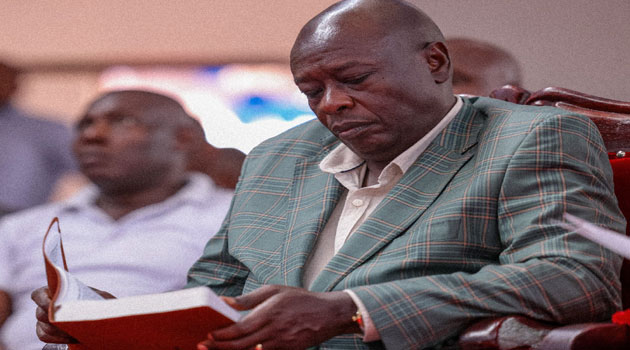In a landmark decision, Deputy President Rigathi Gachagua has become the first Deputy President in Kenya to be impeached.
The Senate upheld five out of eleven charges against him, marking a significant moment in the country’s political landscape.
Background of the Impeachment
The 59-year-old politician, popularly known as “Riggy G,” faced serious allegations, including corruption, practicing ethnically divisive politics, and undermining the President.
The impeachment motion was initiated by Kibwezi West MP Mwengi Mutuse, leading to a two-day trial in the Senate.
Gachagua had denied all charges at the beginning of the proceedings on Wednesday. However, on the second day of the trial, he fell ill and was hospitalized at Karen Hospital due to severe chest pains.
His legal team, led by Senior Counsel Paul Muite, sought an extension for Gachagua to recover and participate in his defense.
This request was rejected by the Senate, prompting Muite to withdraw from the proceedings, stating that they could not represent a client who was incapacitated.
Senate Proceedings and Charges
During the trial, the Senate examined multiple charges against Gachagua. The results were mixed:
- Charge 1: Gross violation of the Constitution (upheld by 53 senators)
- Charge 2: Undermining the President and Cabinet (acquitted with 39 votes against)
- Charge 3: Interference with Nairobi City County Government (acquitted with 45 votes against)
- Charge 4: Undermining judicial independence (upheld by 51 senators)
- Charge 5: Breaching Oath of Office (upheld by 49 senators)
- Charge 6: Inflammatory public utterances (upheld by 48 senators)
- Charge 7: Gross economic crimes (acquitted with 52 votes against)
- Charge 8: Misleading the public (acquitted with 40 votes against)
- Charge 9: Attacking National Intelligence Service (upheld by 46 senators)
- Charge 10: Insubordination towards the President (acquitted with 44 votes against)
Implications of Impeachment
With this impeachment, Gachagua faces significant consequences. If upheld by at least two-thirds of the Senate, he will be barred from holding any public office in Kenya. Following this historic ruling, analysts expect Gachagua to challenge the decision in court.
The political ramifications are profound. As citizens grapple with economic challenges and rising living costs, this political upheaval may serve as a distraction from pressing national issues.
Deputy President Rigathi Gachagua’s impeachment marks a pivotal moment in Kenya’s political history. As the country watches closely, the implications of this decision will resonate far beyond the Senate chambers, shaping future governance and political accountability in Kenya.















